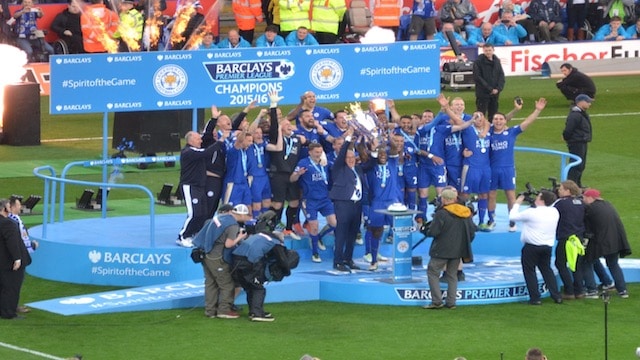As the threat to their business model from cord-cutting ramps up, pay-TV providers have championed the idea that live sports remain their ace in the hole when it comes to retaining customers. After all, live sports can’t be binge watched like your favourite TV series or viewed on social media.
That’s why the news that Sky’s (LSE: SKY) viewer numbers for Premiership football this season are down 19% and BT’s (LSE: BT.A) Champions League viewing has been down by as much as 40% have caused consternation with media companies and a dollop of schadenfreude from viewers tired of paying £80 a month to watch football.
This could simply be a one-off event driven by a lacklustre schedule to begin the season or a Euro 2016-related hangover. But it’s worth exploring whether Sky could be in trouble if this were to become a long-term phenomenon. After all, Sky has built its brand around being the home of Premiership football and the company shelled out £4.18bn in the latest bidding for just three years of domestic TV rights.
So far Sky’s financial reports show no sign of weakness related to diminished demand for football. In fact, the company added 35,000 new subscribers in the three months through September in the UK alone and over 100,000 across Europe.
And, Sky would likely dispute this, but the company appears to already be planning for a post-Premiership media landscape. The company has been assiduously buying up the rights to high-quality international content and its adverts now feature Game of Thrones or House of Cards as often as Paul Pogba.
This is a wise move as young viewers of my generation increasingly turn away from watching live sports altogether or simply rely on bountiful free streams when we do tune in. That’s why Sky’s move into providing mobile services and strengthening non-sports offerings will be critical for the company’s long-term success.
These shifting consumer habits come at a bad time for BT as it invests heavily in remaking itself as a major media player with over £1.7bn spent on football rights and the £12.5bn acquisition of mobile provider EE in the past few years alone.
However, just as we’ve seen with Sky, while the long-term outlook may be cloudy for expensive pay-TV bundles, customers are still flocking to them in the short term. Over the past quarter BT added 63,000 new subscribers and now has 1.7m in total.
Something to fall back on
BT also has the added benefit of being able to fall back on its cash cow Openreach. This division, which owns nearly all the broadband and fixed line infrastructure in the country, continues to provide prodigious profits and accounted for more than a third of BT’s overall EBITDA in the past three months.
While early season football viewer figures aren’t good news for either BT or Sky, neither company is in danger of going the way of the dodo thanks to geographic and brand diversification. Each may have to be more flexible when it comes to fees and mobile viewing options but with significant content in their libraries and older age groups still buying TV packages as they always have, each company will have breathing room to reorient if need be.







